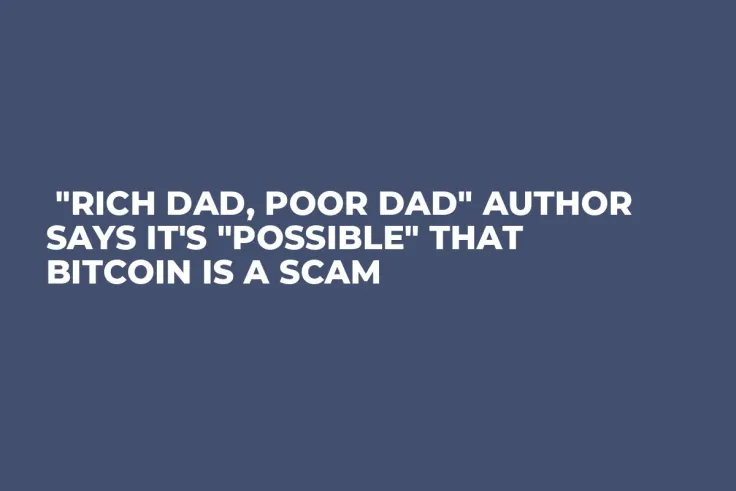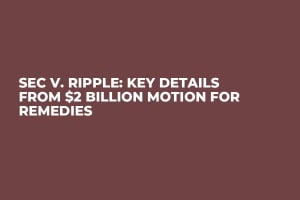
In a recent post on the X social media platform, controversial investment guru Robert Kiyosaki, who is best known as the author of "Rich Dad, Poor Dad," did not rule out that Bitcoin, the flagship cryptocurrency, could be a scam and a Ponzi scheme.
"Yes. It is possible Bitcoin is a scam and a Ponzi scheme," Kiyosaki.
Despite admitting that he is concerned about Bitcoin potentially being a Ponzi scheme, he argues that it would still be no different from fiat currencies such as the US dollar and the euro.
Kiyosaki has also acknowledged that the price of Bitcoin could eventually go to zero, but he has also said that the same applies to fiat currencies.
Still, the financial expert remains bullish on the largest cryptocurrency, recently predicting that the price of the flagship cryptocurrency could surge to as high as $300,000 in 2024.
According to his latest post, his optimism stems from Metcalfe’s Law, which many see as a model of value for Bitcoin. The law, which focuses on network effects, posits that the value of a certain network increases with the number of its users. In the context of Bitcoin, proponents of Metcalfe's Law argue that as more individuals adopt and use Bitcoin, its value will increase due to the growing network effect.
Kiyosaki predicts that most of the cryptocurrency tokens that come off of the Ethereum platform will die because they lack a strong network. "That would like you belonging to a cell phone network with only you," Kiyosaki noted.
The entrepreneur claims that he sees Bitcoin as "the perfect asset at the right time." Kiyosaki regrets not buying more Bitcoin earlier at lower prices.
At press time, the largest cryptocurrency by market cap is trading at $70,467, according to CoinGecko data.

 Vladislav Sopov
Vladislav Sopov Dan Burgin
Dan Burgin